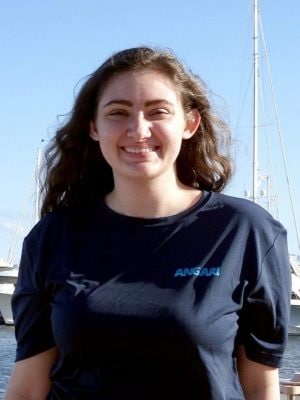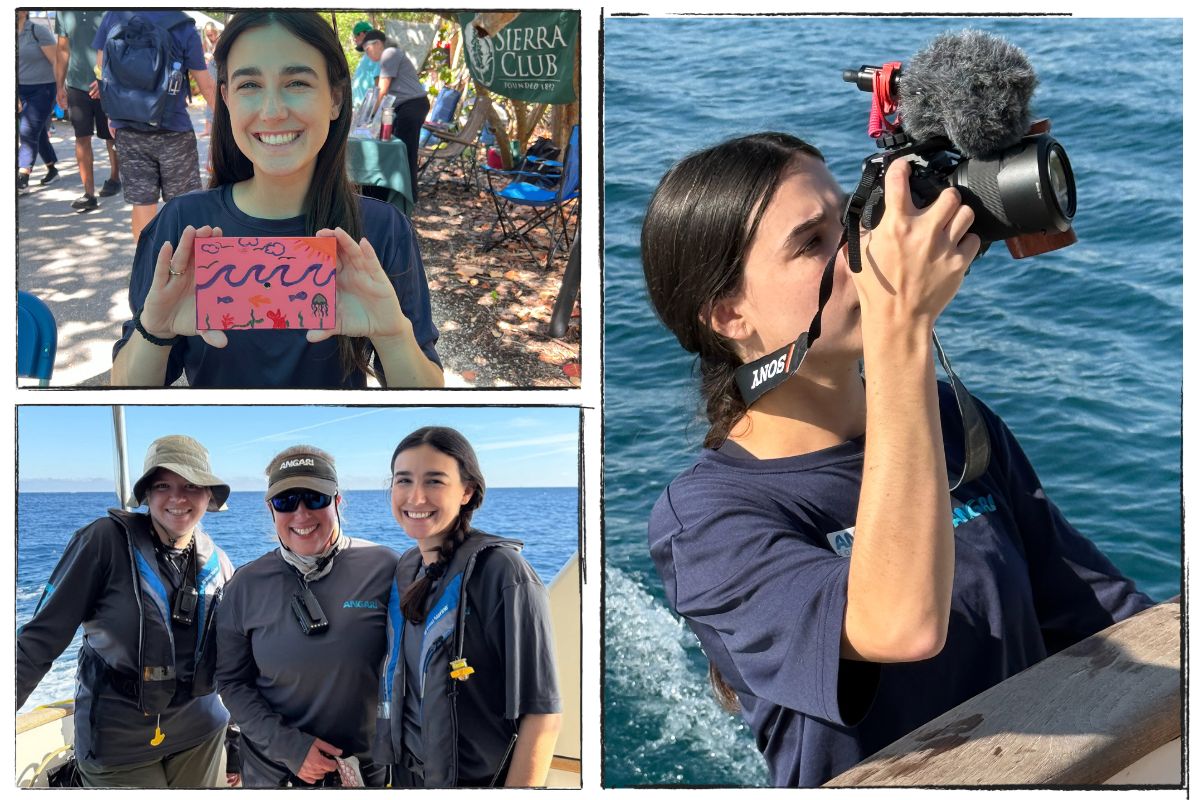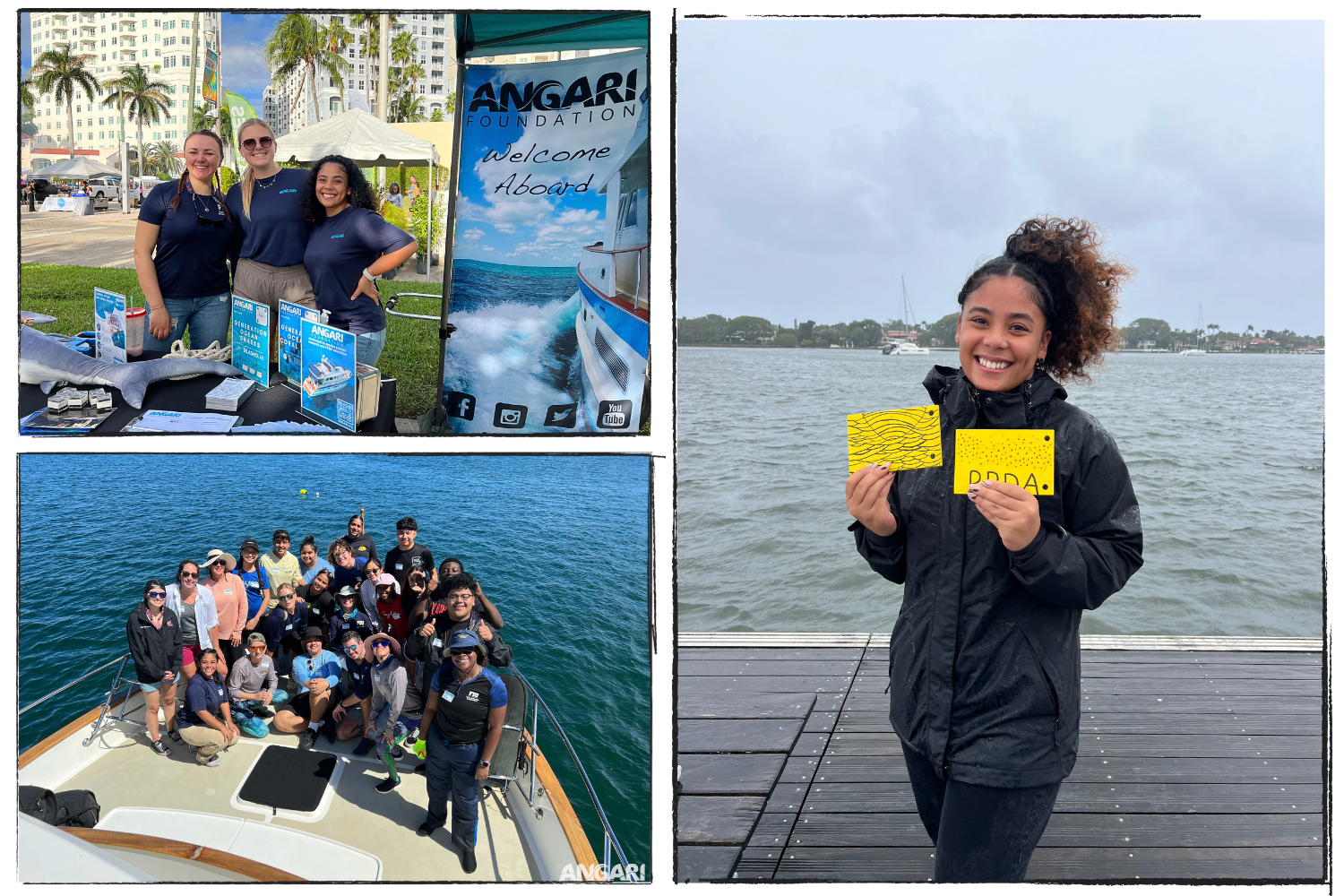Having the opportunity to intern with ANGARI Foundation has been an exciting and unforgettable adventure! My time here has been full of new experiences, growth, furthering my craft and developing a deeper passion for our marine environments. As an intern, I focused on creating two video projects that convey the purpose and heart behind the programs Coastal Ocean Explorers: Sharks and Lagoon Drift.
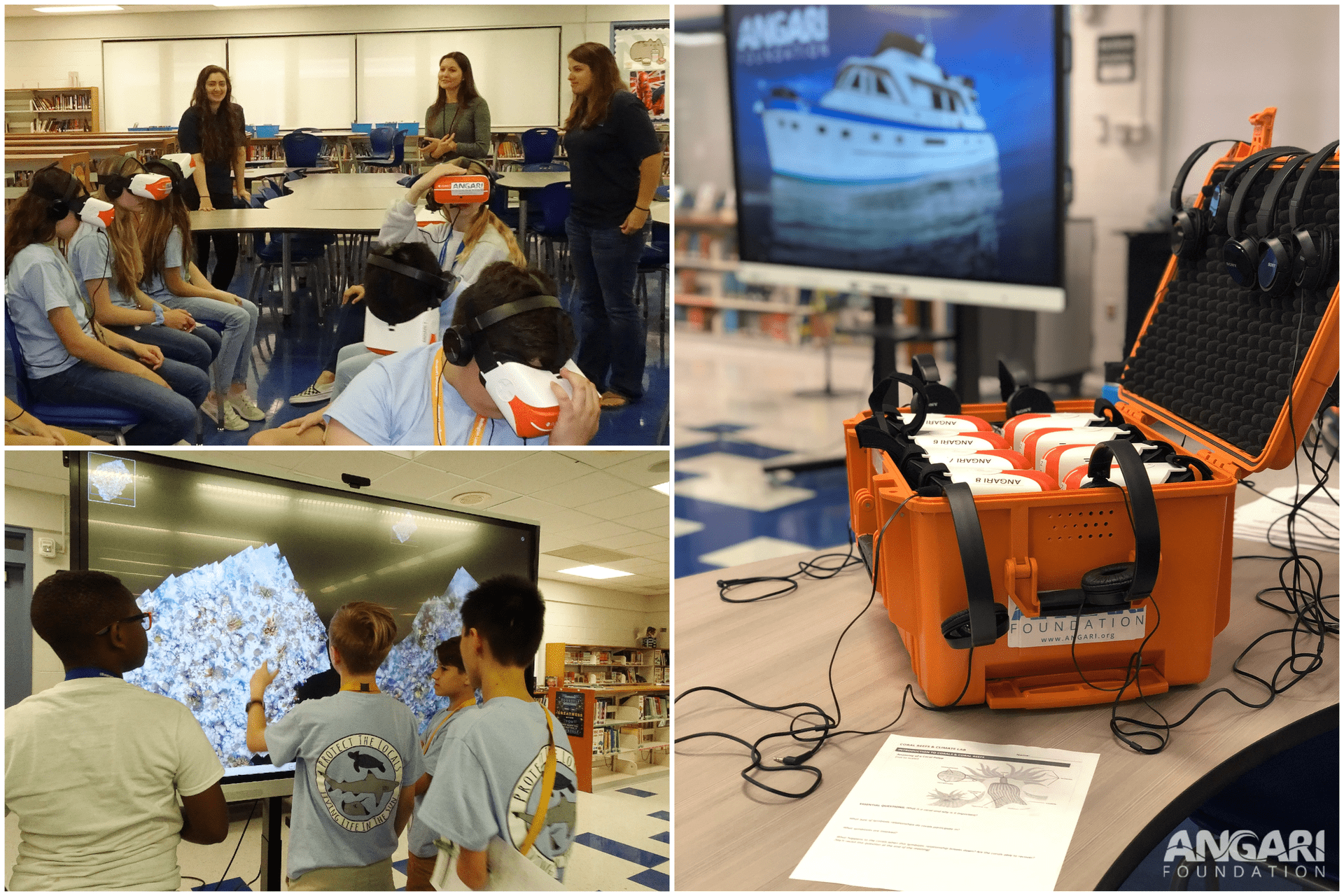
My Experience Participating in a Coral Reef Science Classroom Visit
By Kayla Windelspecht – Spring 2020 Intern
Gaining experience in science outreach and education is one of my main goals of my internship with ANGARI Foundation. I had the opportunity to practice this on March 11, when I accompanied the rest of the ANGARI team to Wellington Landings Middle School (WLMS) to give students an immersive experience with coral reef science.
We arrived at WLMS at 7:30 in the morning, and had 30 minutes to get everything set up in the school’s library before the students arrived. We were to have an hour to engage with the students before their classes officially started for the day. We wanted to ensure that every student would have time to complete each activity and learn something new. Having never used a virtual reality (VR) headset outside of my training during event preparation (or participated in a classroom education visit before), I was admittedly a little nervous about how the event would go.
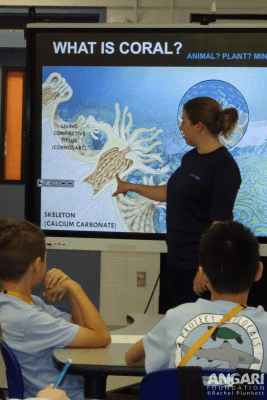
While Dr. Amanda Waite, ANGARI’s Director of Science & Education and Advancement gave a PowerPoint introduction to the morning’s activities, I helped turn on and check all the ClassVR headsets, running through my training in my head as we prepared. After the introduction, the students divided into rotating groups, with two groups participating in a SMART Board activity comparing reef photomosaic imagery through time, including several real-life coral bleaching events, while the other groups came to the VR station to view ANGARI Foundation’s film Generation Ocean: Coral Reefs using the headsets. My job was at the VR station.
I felt my nervousness quickly slipping away as the event went on. Part of it was due to finding a routine; it wasn’t as complicated a job as I’d feared, and any issues that came up were usually nothing more than a student accidentally pausing the video. However, a larger part of it was the impact of the students themselves. Being members of the school’s Marine Conservation Club, they were clearly engaged with and excited about the material, and many had never used a VR headset before, making this a brand new experience. Most students would turn in place while wearing the headsets, wanting to see everything they could in the 360 degree view of the film. While working with the coral reef photomosaics at the SMART board station, they often pointed out parts of the photos to one another and discussed among themselves potential answers to the open-ended questions given on their worksheets. They had endless questions for Dr. Waite, wanting to learn more and more about coral reefs and scientific research. It was amazing to see how engaged the students were in the material and how excited they were at the chance to learn about coral reefs.

In my opinion, much of this excitement came from the novel experience of the VR headsets. The students were obviously interested in the science behind the presentation, but the headsets and 360/VR film allowed them to become completely immersed in the lesson. Having seen the film in a headset myself, I know that it is a completely different experience than watching a typical educational video. The headsets allow the viewer to feel as though they’re on the R/V ANGARI with the scientists or diving on the reefs themselves. For seven minutes, the students weren’t in a classroom in Wellington Landings Middle School; they were in the ocean participating in scientific discovery. This, I think, is exactly the goal of using VR for education, and it was certainly accomplished for us during this event.
The most obvious gain for me from this experience was in the use of VR headsets. I had never used VR before coming to work at ANGARI, and though I had been given training prior to the event and was told what to expect, it was much different experiencing it myself. Additionally, I gained what I most wanted from the event: experience with education outreach. My favorite part of the day was seeing just how much the students welcomed new methods of learning. It felt wonderful to participate in giving them this experience, and reminded me of my own favorite classroom lessons and activities from middle school, which I still remember today. In this case, I gained as much as the students did from the event!
Learn more about this classroom visit here.

